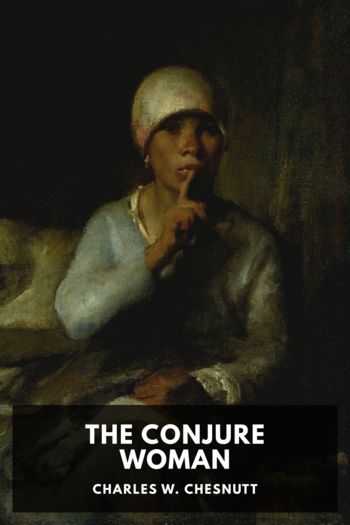The Story of Gösta Berling, Selma Lagerlöf [best way to read books txt] 📗

- Author: Selma Lagerlöf
Book online «The Story of Gösta Berling, Selma Lagerlöf [best way to read books txt] 📗». Author Selma Lagerlöf
When she came on board she only screamed, “Hide me, hide me!” And then she tripped and fell on the pile of iron. But the pensioners bade her be calm. They pushed off hurriedly from the land, so that the barge came out into the current and bore down towards Karlstad, just as the coach reached the ferry.
In the carriage sat Count Henrik and Countess Märta. The count ran forward to ask the ferryman if he had seen his countess. But as Count Henrik was a little embarrassed to have to ask about a runaway wife, he only said:—
“Something has been lost!”
“Really?” said the ferryman.
“Something has been lost. I ask if you have seen anything?”
“What are you asking about?”
“Yes, it makes no difference, but something has been lost. I ask if you have ferried anything over the river today?”
By these means he could find out nothing, and Countess Märta had to go and speak to the man. She knew in a minute, that she whom they sought was on board one of the heavily gliding barges.
“Who are the people on those barges?”
“Oh, they are the pensioners, as we call them.”
“Ah,” says the countess. “Yes, then your wife is in good keeping, Henrik. We might as well go straight home.”
On the barge there was no such great joy as Countess Märta believed. As long as the yellow coach was in sight, the frightened young woman shrank together on the load motionless and silent, staring at the shore.
Probably she first recognized the pensioners when she had seen the yellow coach drive away. She started up. It was as if she wanted to escape again, but she was stopped by the one standing nearest, and she sank back on the load with a faint moan.
The pensioners dared not speak to her nor ask her any questions. She looked as if on the verge of madness.
Their careless heads began verily to be heavy with responsibility. This iron was already a heavy load for unaccustomed shoulders, and now they had to watch over a young, highborn lady, who had run away from her husband.
When they had met this young woman at the balls of the winter, one and another of them had thought of a little sister whom he had once loved. When he played and romped with that sister he needed to handle her carefully, and when he talked with her he had learned to be careful not to use bad words. If a strange boy had chased her too wildly in their play or had sung coarse songs for her, he had thrown himself on him with boundless fury and almost pounded the life out of him, for his little sister should never hear anything bad nor suffer any pain nor ever be met with anger and hate.
Countess Elizabeth had been like a joyous sister to them all. When she had laid her little hands in their hard fists, it had been as if she had said: “Feel how fragile I am, but you are my big brother; you shall protect me both from others and from yourself.” And they had been courtly knights as long as they had been with her.
Now the pensioners looked upon her with terror, and did not quite recognize her. She was worn and thin, her neck was without roundness, her face transparent. She must have struck herself during her wanderings, for from a little wound on her temple blood was trickling, and her curly, light hair, which shaded her brow, was sticky with it. Her dress was soiled from her long walk on the wet paths, and her shoes were muddy. The pensioners had a dreadful feeling that this was a stranger. The Countess Elizabeth they knew never had such wild, glittering eyes. Their poor little sister had been hunted nearly to madness. It was as if a soul come down from other spaces was struggling with the right soul for the mastery of her tortured body.
But there was no need for them to worry over what they should do with her. The old thought soon waked in her. Temptation had come to her again. God wished to try her once more. See, she is among friends; does she intend to leave the path of the penitent?
She rises and cries that she must go.
The pensioners try to calm her. They told her that she was safe. They would protect her from all persecution.
She only begged to be allowed to get into the little boat, which was towed after the barge, and row to the land, to continue her wandering.
But they could not let her go. What would become of her? It was better to remain with them. They were only poor old men, but they would surely find some way to help her.
Then she wrung her hands and begged them to let her go. But they could not grant her prayer. She was so exhausted and weak that they thought that she would die by the roadside.
Gösta Berling stood a short distance away and looked down into the water. Perhaps the young woman would not wish to see him. He did not know it, but his thoughts played and smiled. “Nobody knows where she is,” he thought; “we can take her with us to Ekeby. We will keep her hidden there, we pensioners, and we will be good





Comments (0)